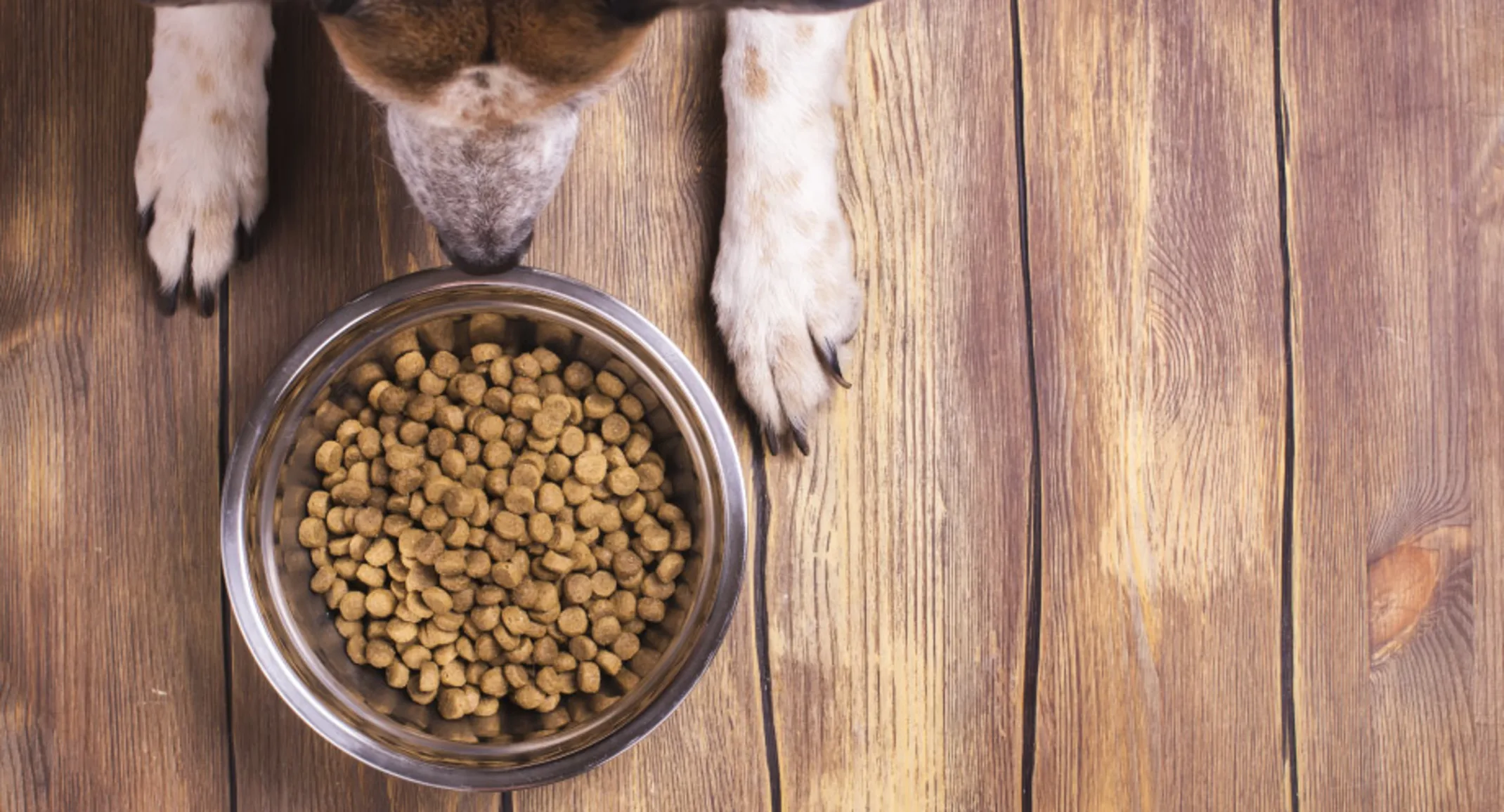September 2021 Newsletter: Pet Food Recalls and What You Need to Know
Newsletters

There have been several recent media mentions regarding contaminated pet food. This month, we explore three common types of pet food contamination — sharing the symptoms, treatment and potential risk to both pets and their owners.
Salmonella
Salmonella is a bacteria that commonly causes “food poisoning.” Pet food contaminated with Salmonella bacteria does not usually look, smell or taste bad. However, Salmonella can be found in many foods including raw beef, chicken, eggs, pork, fruit, vegetables and even processed or partially cooked foods.
Pets with Salmonella infections may be lethargic and can experience diarrhea or vomiting. Some pets may experience decreased appetite, fever or abdominal pain. Infected but otherwise healthy pets can be carriers and infect other animals or people through their feces or saliva. If your pet has consumed a recalled product and has any of these symptoms, please contact us immediately.
To diagnose Salmonella, we’ll need a sample of your pet’s feces or possibly their urine or blood. Once confirmed, your pet can be treated with an antibiotic along with plenty of clean water to keep your pet hydrated. Of course, lots of love will help, too.
Beyond impacting your pet, there is a risk to pet owners from handling products with Salmonella — or by interacting with an infected pet. We encourage pet owners to thoroughly wash their hands and clean all surfaces and utensils to avoid cross contamination. If sick, pet owners should tell their doctors about the possible exposure to Salmonella bacteria because special tests are necessary to diagnose salmonellosis.
Listeria
Listeria monocytogenes (L. mono) is also a bacteria that can cause illness and death in pets and humans — particularly the very young, very old, or those with weakened immune systems.
Dogs and cats can be exposed to Listeria from contaminated pet foods as well as eating contaminated garbage. Listeria can be present in raw milk and foods made from raw milk and contaminate a variety of processed meats and dairy products. Unlike many other bacteria, Listeria can grow in low temperatures and even spread to other foods in the refrigerator. However, Listeria is killed by pasteurization and full cooking.
While much less common in pets, Listeria infections are possible. Symptoms may include mild to severe diarrhea, fever, nervousness, difficulty breathing, shock and possibly death. Pets do not need to display symptoms to pass Listeria on to their owners. As with Salmonella, infected pets can shed Listeria in their feces and saliva without showing signs of being sick.
Depending upon the degree of infection, antibiotics and fluids may be required to treat your pet.
Within humans, Listeria can cause a variety of symptoms including headaches, stiff neck, confusion, loss of balance, fever and muscle aches. Listeria is serious and those who believe they may be impacted should contact their doctor.
Aflatoxins
Aflatoxins are toxins produced by the mold Aspergillus flavus that can grow on corn and other grains used in pet food. At high levels, aflatoxins can cause illness (aflatoxicosis), liver damage, and even death in pets.
Pets are highly susceptible to aflatoxin poisoning as they generally eat the same food over extended periods of time. If your pet’s food contains aflatoxins, the toxins could accumulate in your pet’s system.
Pets suffering from aflatoxin poisoning may experience signs such as sluggishness, loss of appetite, vomiting, jaundice (yellowish tint to the eyes, gums or skin due to liver damage), unexplained bruising or bleeding, and/or diarrhea. In some cases, aflatoxins can affect blood clotting and cause long-term liver problems. Some pets may suffer liver damage without showing any signs in the early stages of aflatoxin poisoning and if they continue eating contaminated food, they may die suddenly. Pet owners who suspect their pets have eaten contaminated food should contact us immediately.
A liver test is required to diagnose aflatoxin poisoning. As there is no antidote for aflatoxins, the goal is to eliminate the source of aflatoxins by preventing any additional consumption. Supportive care to manage any biochemical imbalances may be required. Pets exposed to non-lethal doses of aflatoxin may survive but can have long-term health problems — particularly liver damage.
Currently, there is little evidence to suggest that pet owners who handle products containing aflatoxins are at risk of aflatoxin poisoning themselves. However, pet owners should always wash their hands after handling pet food and treats.
Pet Food FDA Recall List
To help keep pet owners aware of recent pet food recalls, please visit the link below.
https://www.fda.gov/animal-veterinary/safety-health/recalls-withdrawals
Contact Us If you ever have any pet health concerns, including any foodborne related illnesses, please contact us. We are always here for you and your pets!
